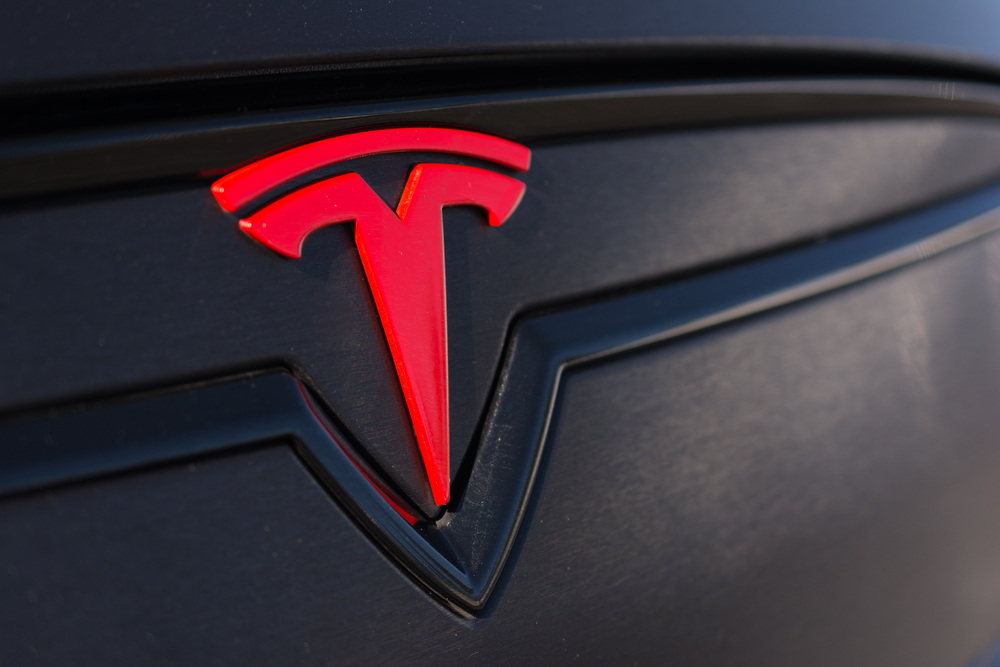Elon Musk announced on Twitter last night that Tesla will start taking reservations for its much-anticipated Model 3 sedan at the end of next month. The car has a $35,000 price tag but could actually cost as low as $25,000 after accounting for federal tax credits. So if you don’t happen to be a man who makes $100,000 a year, then rejoice, because unlike Tesla’s last two cars, this one’s for you.
But before you go reserving your moral duty dream car, know that there’s a lot riding on whether or not Tesla can actually start churning these puppies out as early as next year, as the company claims. With a 200-mile-per-charge range and a cost that — with tax credits — makes it perfectly affordable in a country where people pay $31,000 on average for new cars, the Model 3 is every bit the EV that could finally revolutionize the roads. But so is General Motors’ all-electric Chevy Bolt.
Slated to go into production by the end of this year, the Bolt will also get 200-miles-per-charge and will cost about $30,000, making it a direct competitor with the Model S to become the world’s first EV for the masses. And since GM is a vast and powerful automaker with years of experience, gobs of money, and a well-worn production line, the company will most likely meet its deadline.
Tesla, meanwhile, is a scruffy outsider riding on one man’s dream to save the world, has a history of lengthy delays (mostly recently with the luxury Model X), and needs to scale up production at a pace not seen in the auto industry since Ford churned out the Model T in order to become the go-to EV maker. So it’s no wonder that Morgan Stanley analyst Adam Jonas told Bloomberg that he doesn’t expect the Model S to actually hit the market until 2018.
But by then, GM could totally own that market. And honestly, that’s some bullshit.
Sure, reducing emissions is the ultimate goal here. And sure, capitalism means that the best/richest/most powerful company wins. But let’s not forget that GM is the company that marketed the Hummer. And let’s also not forget that GM actually killed the electric car — twice. Here’s what happened, from Wired’s latest cover story:
In the earliest days of the auto industry, electric cars were about as popular as their combustion-powered counterparts. Just like today, they were cleaner and quieter but more limited in range than the competition. Plus, they didn’t require a hand crank to start—an annoying feature of early combustion vehicles that occasionally resulted in broken fingers. But in 1912, Cadillac, GM’s luxury arm, came out with the first electric starter for gas-powered vehicles. Electric cars died out shortly thereafter, and in a cloud of exhaust GM surged to become the world’s largest carmaker.
Fast-forward 84 years, and for a brief interlude it looked like GM was about to take the lead in bringing electrics back. In 1996, in response to a California mandate that required automakers to have zero-emissions vehicles ready for market by 1998, GM rolled out the EV1, the first mass-produced electric vehicle of the modern era. The funny-looking two-seater had a range of about 50 miles and was offered for lease to consumers in California and Arizona. It was impractical, dinky, and entirely doomed. It earned a small coterie of devotees but held little appeal for mainstream consumers. It used almost all unique parts, forfeiting the advantages of GM’s scale. And even as GM’s EV1 team was busy building the car, GM’s lawyers were lobbying hard, side by side with the other big automakers, to get California to back off its requirement.
So it’ll really suck if Tesla can’t beat GM to the market with its Model 3, because unlike GM, which is clearly just cashing in on what it sees as the future of the auto industry, Tesla’s explicit mission is to “accelerate the advent of sustainable transport by bringing compelling mass market electric cars to market as soon as possible.”
And while Tesla is a public company that has to make a profit for its shareholders, just like GM, it’s also much more than that. The company — and Musk — have proved to be a source of inspiration for those who think that we can have an amazing, high-tech world, without killing the planet. Case in point — this Tesla-inspired short film that, according to Musk, the company had nothing to do with:
[protected-iframe id=”e104de8dbab1866e0a6661eb4842a353-5104299-30178935″ info=”https://player.vimeo.com/video/152927644″ width=”660″ height=”300″ frameborder=”0″ webkitallowfullscreen=”” mozallowfullscreen=”” allowfullscreen=””]




